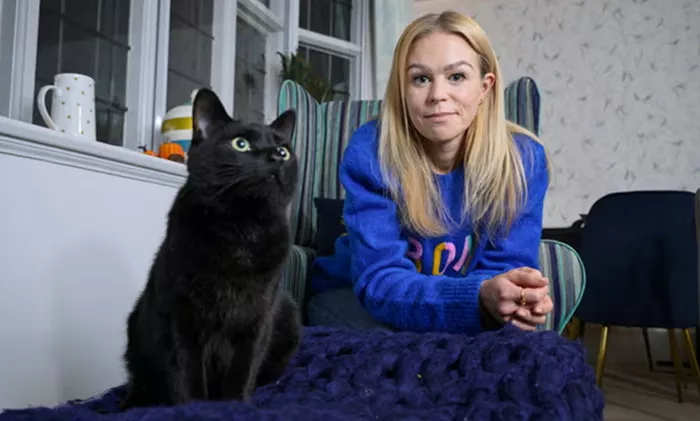TrustedHousesitters Faces Criticism Over Visa Misguidance.
TrustedHousesitters, the world’s largest housesitting platform, is under scrutiny for allegedly encouraging its members to disregard visa regulations. This comes as the company provides misleading travel advice to individuals seeking free accommodation in exchange for pet care.
Some users of TrustedHousesitters have experienced detention and deportation upon arrival for international housesitting assignments due to lacking proper work visas. This situation has left them financially strained and has complicated their future travel plans.
The UK-based company, recently valued at £100 million, charges housesitters an annual fee of £131. It offers thousands of opportunities for individuals to stay for free in homes with pets worldwide. The platform markets itself with the slogan “the freedom to travel” and provides members with letters that suggest they do not need a work visa since their housesitting roles are unpaid.
These letters imply that members can enter countries like the UK, US, Australia, and Canada as tourists, trading “passionate pet care for free accommodation.” However, the Observer has interviewed TrustedHousesitters users who faced immigration issues when arriving as tourists, only to be informed that their unpaid housesitting constituted unauthorized work.
While housesitters do not receive traditional payment, they are compensated with free lodging. They provide services, including pet care and other chores, that homeowners would typically pay for.
TrustedHousesitters claims that it has been advised by immigration lawyers that members travel for leisure rather than work. The company stated that only a “tiny handful” of members have faced issues, estimating around ten cases of border problems in 2023.
Nevertheless, those denied entry to the US and UK—its two most popular destinations—have accused the company of misleading its users and ignoring serious issues.
Madolline Gourley, 34, from Brisbane, Australia, reported losing over 5,000 Australian dollars (£2,584.50) after being detained while attempting to transit through the US en route to a housesitting job in Canada in 2022. US immigration documents indicated that they deemed her unpaid housesitting to be unauthorized employment.
“I can’t go back to the US as a tourist. I can’t even transit through the US anymore,” said Gourley, who works in government communications. She has called for UK regulators to intervene, emphasizing that she faced severe consequences because she was unaware of the visa requirements. “TrustedHousesitters operates as if there are no consequences for them, but the consequences for housesitters are significant.”
In another incident, Gemma Bailey, 45, from Hemel Hempstead, received a call from the UK Border Force informing her that her American housesitter was stopped from entering the UK. Bailey, a therapist, had planned to fly to Bulgaria the next day, with the housesitter set to care for her cat.
“They asked if I was expecting this lady, and when I confirmed, they said it was not legal,” Bailey recounted. “They informed me she would be detained, and they would decide whether to deport her. She felt very aggrieved, treated like a criminal.”
Bailey added, “TrustedHousesitters must acknowledge this legitimate issue and be transparent about it.”
Founded in 2010 and acquired in December by London-based Mayfair Partners for £100 million, TrustedHousesitters currently lists 7,932 housesitting opportunities worldwide. On Instagram, the company describes petsitting as a “workation.”
Prof. Michaela Benson, an expert in lifestyle migration at the University of Lancaster, stated that housesitting exists in a legal “grey area” that needs clarification. She believes the company’s marketing plays on this ambiguity and could mislead its users.
TrustedHousesitters argues that unpaid housesitting is not a form of work and can be conducted by tourists. However, this position contradicts statements from UK and US government officials, who indicate that housesitting is generally considered work, even if unpaid.
Nicolette Bostock, head of UK immigration at the law firm Withers, noted that many countries likely view unpaid housesitting as work. “Even with no financial transaction, there’s an expectation of services exchanged between the housesitter and the homeowner,” she explained.
Canadian housesitter Elyse Sevigny, 65, recounted her experience of being blocked from entering the US while traveling for a dogsitting job in New Mexico in August 2023. She showed a TrustedHousesitters letter to border officials, only to be told that free housing is considered remuneration. “I was fingerprinted, photographed, and quite shaken,” she said. After contacting TrustedHousesitters, she received a partial refund of her membership fee.
Related topics:
- Will Deporting Immigrants Lower Housing Costs? Trump Believes So, But Homebuilders Disagree
- Concerns Rise Over Decrease in Foreign Student Visas for UK Universities
- Trump Criticizes Immigrants, Repeats False Claims About Gang Violence at Aurora Rally


